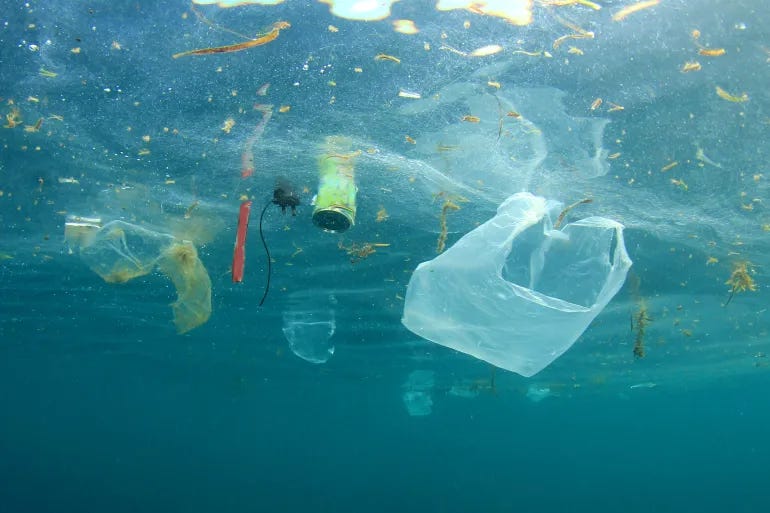Plastic Pollution Talks Stall as Countries Clash Over Production Limits
negotiations on a landmark treaty hit a snag.
Global efforts to tackle plastic pollution face a major hurdle as negotiations on a landmark treaty hit a snag. The key sticking point? Whether or not to limit plastic production at its source.
Talks Reach Impasse:
The latest round of treaty talks in Canada ended without a clear consensus.
175 countries are participating, aiming to finalize a treaty by year-end.
A major disagreement arose: should production of plastic, mostly fossil fuel-based, be limited?
Why Limit Production?
Plastic production is skyrocketing, projected to triple by 2060 if unchecked.
Experts warn this will exacerbate plastic pollution, already a pervasive problem.
Only 9% of plastic is recycled globally, leaving a massive waste stream.
The "Invisible Plastic" Problem:
Beyond plastic bags, many everyday items contain hidden plastic or microplastics.
Examples include chewing gum, tea bags, sunscreen, and even receipts.
These seemingly harmless items contribute to microplastic pollution in our environment, even infiltrating our food chain.
Global Action Needed:
A 2022 UN resolution aims to establish a legally binding treaty on plastic pollution.
Environmental groups urge a reduction in plastic production as a crucial step.
Some countries, however, resist production limits due to economic concerns.
The Road Ahead:
A final round of talks will be held in South Korea later this year.
Can negotiators bridge the divide and forge a treaty that tackles plastic pollution at its root?
Stay tuned for further updates on this critical issue.



